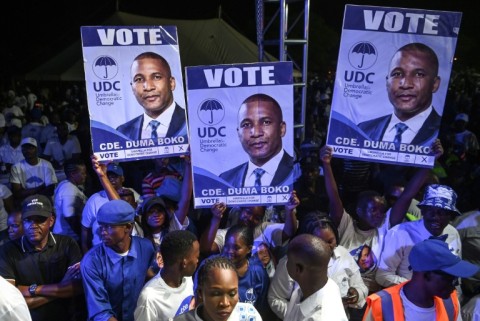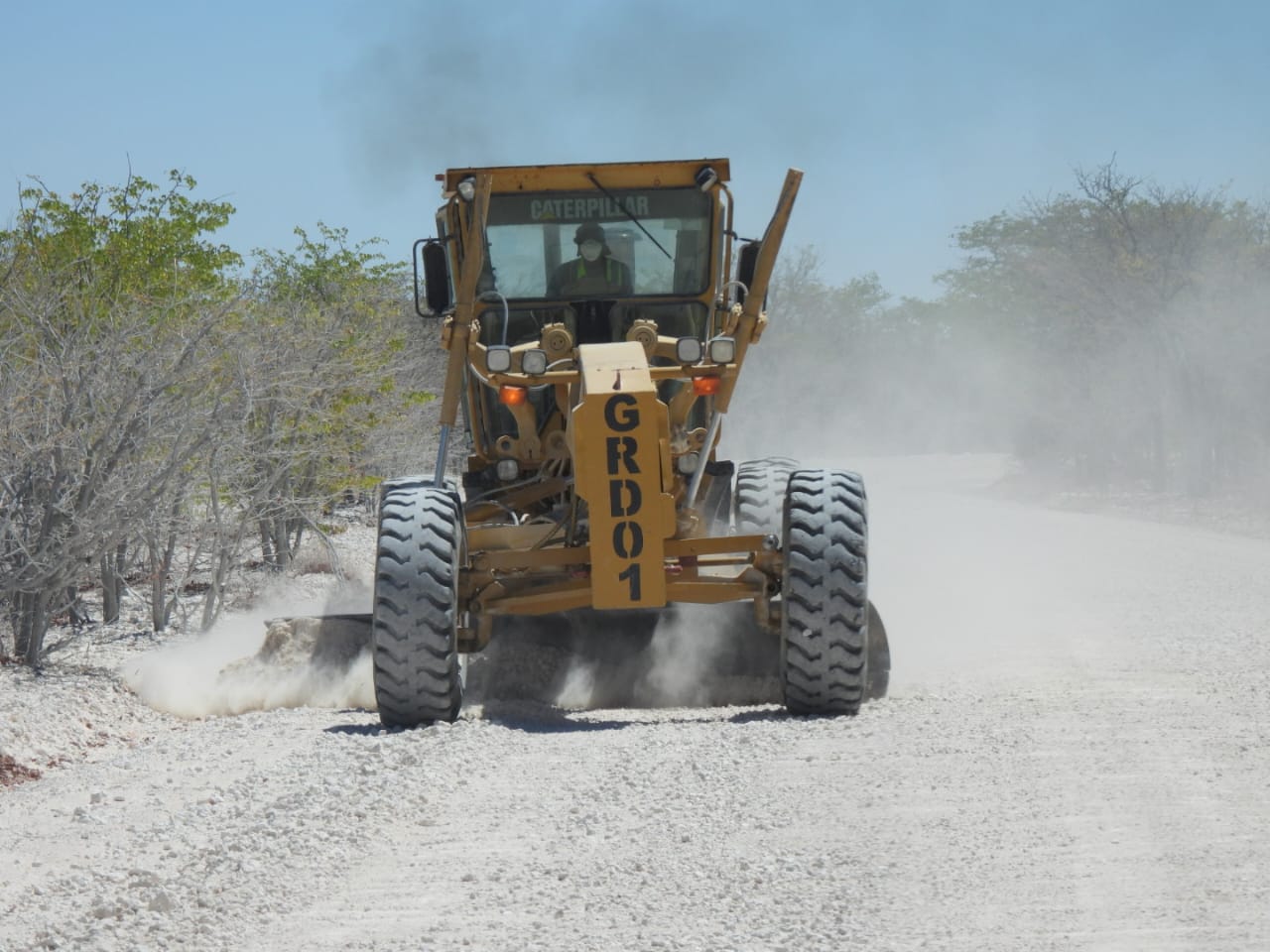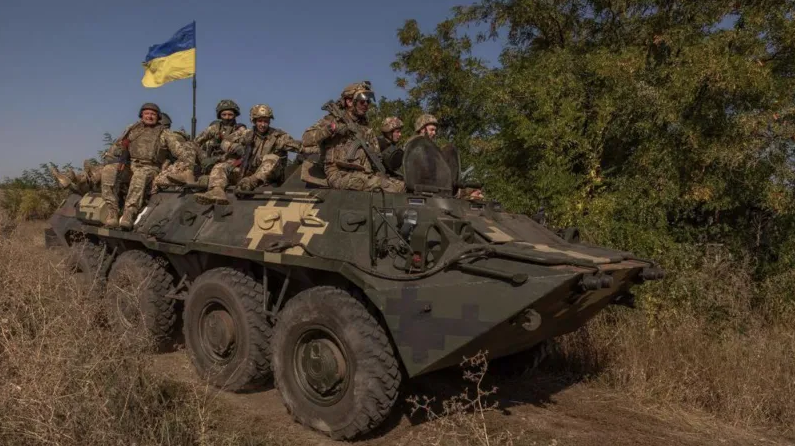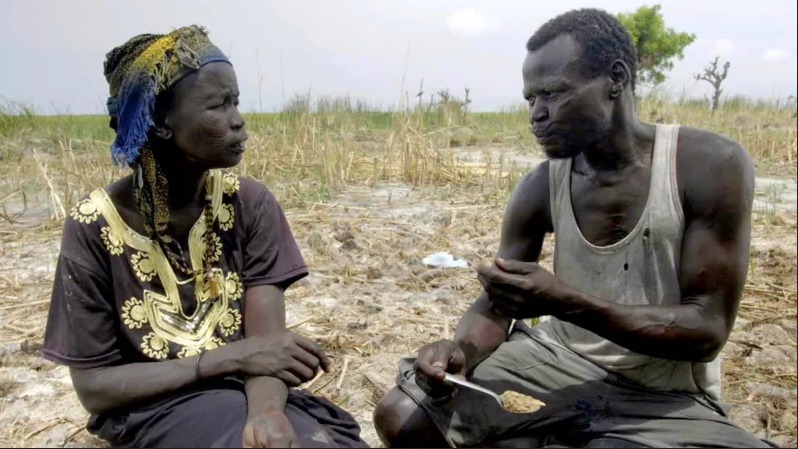A FEW months ago on a farm near the town of Banket in Western Zimbabwe, one of my friends saw a man with a whip on a ploughing tractor.
It soon became obvious the new black farmer was whipping oxen pulling the tractor to till the land. The farm is one of many expropriated in the last five or six years during President Robert Mugabe’s so-called “fast track” programme to hand land to his country’s black citizens.The scene of oxen pulling a tractor may seem surreal, but it is true.In fact, there are many similar experiences.Mugabe’s desperate tricks to cling to power have backfired on ordinary Zimbabweans.I saw first-hand on a whirlwind Easter holiday what can be described as nothing but hell for the poor (the blacks for whom Mugabe allegedly appropriated white-owned farms).As you may guessed, the tractor had no diesel.The most likely reason is that the resettled black farmer has no money to buy diesel or other implements to maintain production on the land.But it could also simply be that the farmer could not find any diesel to buy.Fuel stations are the most inactive businesses in Zimbabwe.My journey began in Windhoek on Friday morning, 14 April, via Maun and Francistown in Botswana.Most of us would be aware of the hardships in Zimbabwe just from reading news or having experience of personal visits in the past.But a harsh reminder hit me as two kind Zimbabwean men who gave me a lift stopped at a Spar supermarket in the last town in Botswana before the Plumtree border post.Their shopping cart contained 10 kg of rice, one litre of cooking oil, 2 kg of washing powder, two loaves of bread and deodorant, all of which took an hour of picking up and putting back things they wished to buy but could not fit into their 100 Pula budget.Used to the Namibian dollar and aware of the fact that the Botswana Pula is strong, the goods seemed a little too expensive.But the two men assured me they were not only a great deal cheaper than in Zimbabwe, but that they might also not find those products back home in Harare.Having emptied two 50-litre and one 20-litre drum of diesel into the bakkie, the drive to Zimbabwe got underway.At Plumtree border post everyone else (all five Zimbabweans in the vehicle) had little trouble getting through immigration.They were then reminded to pay 100 000 Zimbabwean dollars (N$3) as import duty for the rice.It is an apparent attempt to discourage people from taking rice, flour, maize meal and other such commodities into the country, apparently because they are available there.One Zimbabwean remarked to the customs officials that it must cost more than Z$100 000 to print the paper, affix a stamp and fill out forms in triplicate.He agreed, but that’s the law.Having been warned of the Zimbabwean government’s allergy to journalists, I tried to soften the immigration official’s keen interest in my passport by describing myself as a “writer”.”What type of writer are you?” he asked.”A journalist and researcher.I write a lot of different things,” I said, by which time the two men who had offered me a lift had already explained that I came from a friendly country.The immigration officer would not be fooled.He filled in my name on a form forbidding me from “writing anything about Zimbabwe because you are just a visitor and have no right to work”.He also warned that any writing during or after the trip would lead to my being banned from entering Zimbabwe again.So, here we go.About 50 km from Bulawayo, Zimbabwe’s fuel crisis was telling.A car that was pulling a bakkie carrying several drums of fuel had left the road and crashed into a ditch and motorists and other passers-by stopped to look or to help.The journey continued.My first purchase in Zimbabwe was in Bulawayo, 100 km from Plumtree.It was a Nando’s quarter chicken and chips – lemon and herb flavour.It cost Z$590 000 (N$18)! The cooldrink was Z$70 000 (N$2).I had to borrow the money, having carefully avoided the black-market currency exchange for fear of arrest.After all, we hear Mugabe’s secret service is everywhere.Although I had been to Zimbabwe three years earlier, the price stunned me.Three years ago, a Nandos’s half chicken and chips cost about Z$8 000.It should not really have been such a shock, considering I was aware the Zimbabwe government measured the inflation rate at over 913%.But still…So, how often in a month do they raise prices? “Aaah, my brother,” said a woman going to Gweru with the same lift, “you will get into a taxi in the morning which costs Z$35 000 (N$1) and by the time you come back late evening they will tell you the price has gone up to Z$100 000!” Some friends told a story of a man who went into a shop to buy beer.When he came to the till, he realised he had brought enough money to buy two beers.He went to the back of the store to get another beer.By the time he returned to the till, the price had gone up.He could only afford one beer! Internet provider fees rose from Z$300 000 to Z$1 million in a month.A teacher friend I travelled with says their salary is Z$5 million a month.As if that is not enough of an insult, the salary is paid three months late.It seems the government does not even have money to buy ink and paper to print the worthless money.The government has discarded the official currency and prints “bearer cheques” in denominations of Z$10 000, Z$20 000 and Z$50 000.Most of these notes have expired but that does not bother anyone.Trade goes on.In Harare, a taxi driver tells me he charges Z$1 million from the city centre to the Borrowdale suburb where I was going.I negotiate to pay Z$800 000, careful not to squander the Z$2 million my host had given me as equivalent to N$50.The taxi driver says if he makes Z$10 million a day, business has been extremely good.Tourists who used to be his customer base have stopped going to Zimbabwe.Even the Chinese, whose packets of sweets and biscuits dominate store shelves, have cut their travel back home to fellow communist pretenders (a drop of 70 percent over the past year).The radio in the taxi announces that citizens should go to the stadium with pride to celebrate the 26th independence anniversary the next day (18 April).”What are we going to celebrate?,” asks the taxi driver, well aware the radio announcer could not hear him reply to her unconvincing invitation.He bemoans the fact that Zimbabweans have become a poorly dressed nation compared to their neighbours in Malawi, Mozambique and Zambia, who they had teased about their ragged clothes just over 10 years ago.Rubbish is strewn on the pavements as dogs and human scavengers rummage for whatever meal they can salvage.The Harare municipality has no money to buy fuel to pick up the trash.Trying to evade potholes makes driving seem like Formula One cars trying to avoid crashing into one another.Lampposts stand skew with electric wires dangling dangerously above children playing in upmarket suburbs.Despair is engraved on the faces of most Zimbabweans.It is hard to miss.On the way back to Namibia, the minibus is filled with Zimbabweans.Many are traders but several say they are holiday makers, visiting relatives and friends.”But I will also see if I can find a job in Namibia.I hear it’s easy to get one,” says a teacher.A Namibian immigration officer, seemingly weary of the influx, asks the Zimbabwean woman who wrote on the entry form that she is a housewife, “how are you going to survive on N$300 for a three-month holiday?” She stares at the immigration officer as if he does not know what he is talking about.N$300 is a lot of money in Zimbabwe.”The politicians have destroyed our country with this so-called land redistribution.I don’t need land that I cannot afford to maintain.I need a job,” says one of the people on the minibus to Namibia.”But you guys could be going the same way as us.I read last year you expropriated a farm.”He was referring to Ongombo West, 50 km outside Windhoek.While following all procedures and rules by paying some compensation to the Wiese family, the expropriation was ill conceived.It began with a fight between workers and their employer Andreas Wiese, whom they accused of maltreatment.Then President Sam Nujoma, apparently frustrated with the constant abuse of farm workers around the country, declared Wiese a criminal and said the farm would be expropriated for the dismissed workers to take over.Flower production stopped.The Wieses say a N$10 million investment was cancelled.The source of livelihood of more than 10 families has crumbled.The Government took over the farm in December.Decay has already set in at Ongombo West as at other resettlement farms.Wiese has refused to go back and help run the flower production or offer his export contacts in Europe.People who have followed the Zimbabwean land grab wonder whether the black people benefiting from Namibia’s relatively orderly land distribution programme can keep production going, seeing that they lack experience and skills.The comparison by the Zimbabwean jobseeker is unavoidable.He is a telling sign of how election gimmicks, such as promising land to the landless, can go horribly wrong if not handled carefully.It’s hard to imagine that Namibia could plunge to the level of economic meltdown where Zimbabwe is now.But it was just as hard for Zimbabweans to imagine they’d reach the state of decline that Zambia was in in the 1970s.The decline begins slowly, almost unnoticeably.Thereafter it goes into freefall.All because the voters failed to put the brakes on looting and murderous politicians whose only ambition was to be in power at all costs.How happy I was being back home after only a few days in Mugabe’s hell.Sadly, the Zimbabweans riding with me were also relieved to turn their backs on their country.It is a decision that could not have been taken lightly.But as the Associated Press quoted a prostitute in Harare as saying: “What can I do? I have to eat”.The farm is one of many expropriated in the last five or six years during President Robert Mugabe’s so-called “fast track” programme to hand land to his country’s black citizens.The scene of oxen pulling a tractor may seem surreal, but it is true.In fact, there are many similar experiences.Mugabe’s desperate tricks to cling to power have backfired on ordinary Zimbabweans.I saw first-hand on a whirlwind Easter holiday what can be described as nothing but hell for the poor (the blacks for whom Mugabe allegedly appropriated white-owned farms).As you may guessed, the tractor had no diesel.The most likely reason is that the resettled black farmer has no money to buy diesel or other implements to maintain production on the land.But it could also simply be that the farmer could not find any diesel to buy.Fuel stations are the most inactive businesses in Zimbabwe.My journey began in Windhoek on Friday morning, 14 April, via Maun and Francistown in Botswana.Most of us would be aware of the hardships in Zimbabwe just from reading news or having experience of personal visits in the past.But a harsh reminder hit me as two kind Zimbabwean men who gave me a lift stopped at a Spar supermarket in the last town in Botswana before the Plumtree border post.Their shopping cart contained 10 kg of rice, one litre of cooking oil, 2 kg of washing powder, two loaves of bread and deodorant, all of which took an hour of picking up and putting back things they wished to buy but could not fit into their 100 Pula budget.Used to the Namibian dollar and aware of the fact that the Botswana Pula is strong, the goods seemed a little too expensive.But the two men assured me they were not only a great deal cheaper than in Zimbabwe, but that they might also not find those products back home in Harare.Having emptied two 50-litre and one 20-litre drum of diesel into the bakkie, the drive to Zimbabwe got underway.At Plumtree border post everyone else (all five Zimbabweans in the vehicle) had little trouble getting through immigration.They were then reminded to pay 100 000 Zimbabwean dollars (N$3) as import duty for the rice.It is an apparent attempt to discourage people from taking rice, flour, maize meal and other such commodities into the country, apparently because they are available there.One Zimbabwean remarked to the customs officials that it must cost more than Z$100 000 to print the paper, affix a stamp and fill out forms in triplicate.He agreed, but that’s the law.Having been warned of the Zimbabwean government’s allergy to journalists, I tried to soften the immigration official’s keen interest in my passport by describing myself as a “writer”.”What type of writer are you?” he asked.”A journalist and researcher.I write a lot of different things,” I said, by which time the two men who had offered me a lift had already explained that I came from a friendly country.The immigration officer would not be fooled.He filled in my name on a form forbidding me from “writing anything about Zimbabwe because you are just a visitor and have no right to work”.He also warned that any writing during or after the trip would lead to my being banned from entering Zimbabwe again.So, here we go.About 50 km from Bulawayo, Zimbabwe’s fuel crisis was telling.A car that was pulling a bakkie carrying several drums of fuel had left the road and crashed into a ditch and motorists and other passers-by stopped to look or to help.The journey continued.My first purchase in Zimbabwe was in Bulawayo, 100 km from Plumtree.It was a Nando’s quarter chicken and chips – lemon and herb flavour.It cost Z$590 000 (N$18)! The cooldrink was Z$70 000 (N$2).I had to borrow the money, having carefully avoided the black-market currency exchange for fear of arrest.After all, we hear Mugabe’s secret service is everywhere.Although I had been to Zimbabwe three years earlier, the price stunned me.Three years ago, a Nandos’s half chicken and chips cost about Z$8 000.It should not really have been such a shock, considering I was aware the Zimbabwe government measured the inflation rate at over 913%.But still…So, how often in a month do they raise prices? “Aaah, my brother,” said a woman going to Gweru with the same lift, “you will get into a taxi in the morning which costs Z$35 000 (N$1) and by the time you come back late evening they will tell you the price has gone up to Z$100 000!” Some friends told a story of a man who went into a shop to buy beer.When he came to the till, he realised he had brought enough money to buy two beers.He went to the back of the store to get another beer.By the time he returned to the till, the price had gone up.He could only afford one beer! Internet provider fees rose from Z$300 000 to Z$1 million in a month.A teacher friend I travelled with says their salary is Z$5 million a month.As if that is not enough of an insult, the salary is paid three months late.It seems the government does not even have money to buy ink and paper to print the worthless money.The government has discarded the official currency and prints “bearer cheques” in denominations of Z$10 000, Z$20 000 and Z$50 000.Most of these notes have expired but that does not bother anyone.Trade goes on.In Harare, a taxi driver tells me he charges Z$1 million from the city centre to the Borrowdale suburb where I was going.I negotiate to pay Z$800 000, careful not to squander the Z$2 million my host had given me as equivalent to N$50.The taxi driver says if he makes Z$10 million a day, business has been extremely good.Tourists who used to be his customer base have stopped going to Zimbabwe.Even the Chinese, whose packets of sweets and biscuits dominate store shelves, have cut their travel back home to fellow communist pretenders (a drop of 70 percent over the past year).The radio in the taxi announces that citizens should go to the stadium with pride to celebrate the 26th independence anniversary the next day (18 April).”What are we going to celebrate?,” asks the taxi driver, well aware the radio announcer could not hear him reply to her unconvincing invitation.He bemoans the fact that Zimbabweans have become a poorly dressed nation compared to their neighbours in Malawi, Mozambique and Zambia, who they had teased about their ragged clothes just over 10 years ago.Rubbish is strewn on the pavements as dogs and human scavengers rummage for whatever meal they can salvage.The Harare municipality has no money to buy fuel to pick up the trash.Trying to evade potholes makes driving seem like Formula One cars trying to avoid crashing into one another.Lampposts stand skew with electric wires dangling dangerously above children playing in upmarket suburbs.Despair is engraved on the faces of most Zimbabweans.It is hard to miss.On the way back to Namibia, the minibus is filled with Zimbabweans.Many are traders but several say they are holiday makers, visiting relatives and friends.”But I will also see if I can find a job in Namibia.I hear it’s easy to get one,” says a teacher.A Namibian immigration officer, seemingly weary of the influx, asks the Zimbabwean woman who wrote on the entry form that she is a housewife, “how are you going to survive on N$300 for a three-month holiday?” She stares at the immigration officer as if he does not know what he is talking about.N$300 is a lot of money in Zimbabwe.”The politicians have destroyed our country with this so-called land redistribution.I don’t need land that I cannot afford to maintain.I need a job,” says one of the people on the minibus to Namibia.”But you guys could be going the same way as us.I read last year you expropriated a farm.”He was referring to Ongombo West, 50 km outside Windhoek.While following all procedures and rules by paying some compensation to the Wiese family, the expropriation was ill conceived.It began with a fight between workers and their employer Andreas Wiese, whom they accused of maltreatment.Then President Sam Nujoma, apparently frustrated with the constant abuse of farm workers around the country, declared Wiese a criminal and said the farm would be expropriated for the dismissed workers to take over.Flower production stopped.The Wieses say a N$10 million investment was cancelled.The source of livelihood of more than 10 families has crumbled.The Government took over the farm in December.Decay has already set in at Ongombo West as at other resettlement farms.Wiese has refused to go back and help run the flower production or offer his export contacts in Europe.People who have followed the Zimbabwean land grab wonder whether the black people benefiting from Namibia’s relatively orderly land distribution programme can keep production going, seeing that they lack experience and skills.The comparison by the Zimbabwean jobseeker is unavoidable.He is a telling sign of how election gimmicks, such as promising land to the landless, can go horribly wrong if not handled carefully.It’s hard to imagine that Namibia could plunge to the level of economic meltdown where Zimbabwe is now.But it was just as hard for Zimbabweans to imagine they’d reach the state of decline that Zambia was in in the 1970s.The decline begins slowly, almost unnoticeably.Thereafter it goes into freefall.All because the voters failed to put the brakes on looting and murderous politicians whose only ambition was to be in power at all costs.How happy I was being back home after only a few days in Mugabe’s hell.Sadly, the Zimbabweans riding with me were also relieved to turn their backs on their country.It is a decision that could not have been taken lightly.But as the Associated Press quoted a prostitute in Harare as saying: “What can I do? I have to eat”.
Stay informed with The Namibian – your source for credible journalism. Get in-depth reporting and opinions for
only N$85 a month. Invest in journalism, invest in democracy –
Subscribe Now!






